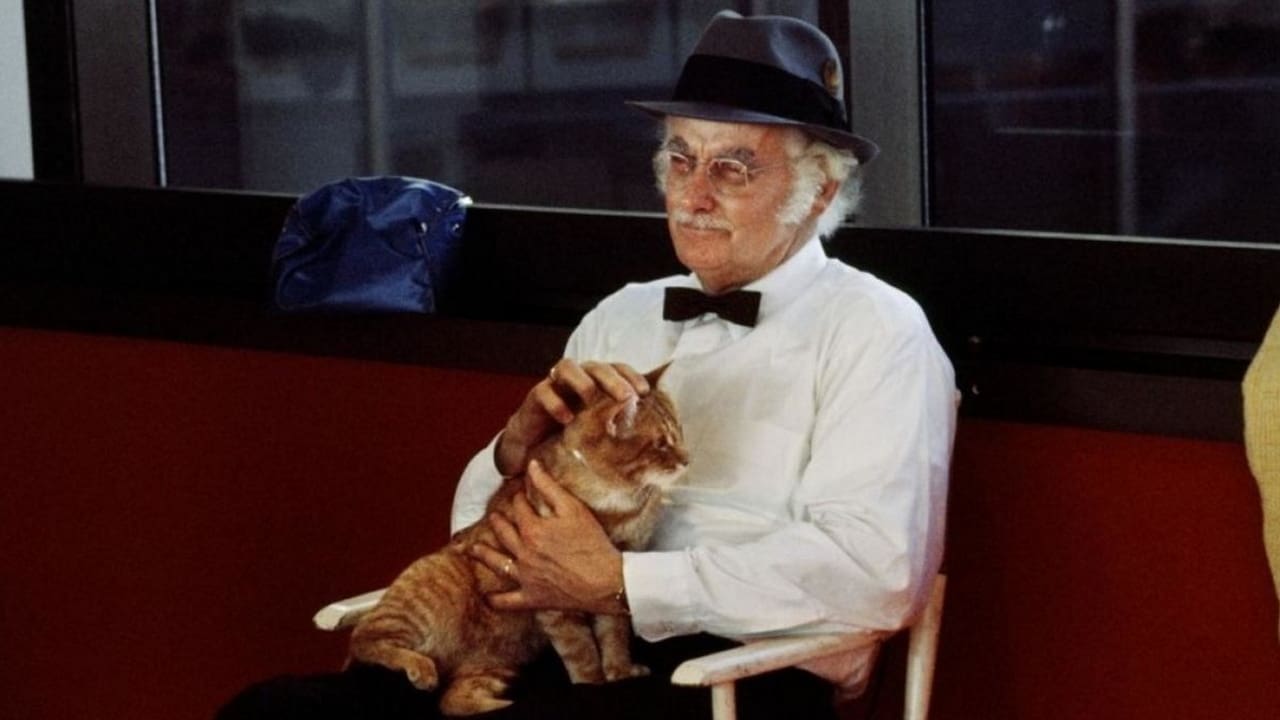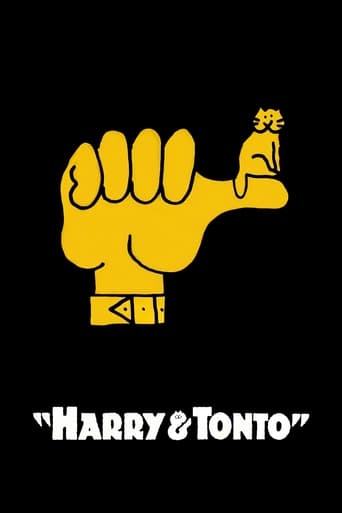

It’s not bad or unwatchable but despite the amplitude of the spectacle, the end result is underwhelming.
... View MoreThe plot isn't so bad, but the pace of storytelling is too slow which makes people bored. Certain moments are so obvious and unnecessary for the main plot. I would've fast-forwarded those moments if it was an online streaming. The ending looks like implying a sequel, not sure if this movie will get one
... View MoreClose shines in drama with strong language, adult themes.
... View MoreA great movie, one of the best of this year. There was a bit of confusion at one point in the plot, but nothing serious.
... View More"Harry and Tonto," reminded me of John Steinbeck's 1962 book, "Travels with Charley." In that travelogue, Steinbeck wrote about a road trip he took around the United States with his French poodle, Charley. Steinbeck drove his camper on the Interstates and back roads as he circled the country in 1960. He stopped at roadside diners, gas stations, truck stops and shops along the way. He talked to truck drivers, waitresses, hitchhikers, store clerks, and people on the streets. No doubt, the writers for "Harry and Tonto," Paul Mazursky and Josh Greenfeld, got some ideas from Steinbeck's book. The situation is quite different here, though. While it's billed as a "cross country odyssey," it's more of a trip interrupted here and there. Art Carney is Harry, and some of his encounters don't seem natural or spontaneous to me. Rather, they seem contrived. The film moves very slowly at times, and has a mix of Harry's philosophy and talks with other people. The movie also reminded me of the later very good comedy drama, "Planes, Trains & Automobiles." In that hit comedy, Steve Martin and John Candy meet while traveling from New York to Chicago for Christmas. Weather, accidents and numerous other situations lead them to take different modes of travel. In this film, Harry's son, Burt, drops him off at the airport to catch a plane to Chicago to visit his daughter. But Harry has to leave the airport because he wouldn't let go of Tonto's cage to pass through the security scanner (that's right, airport security was there as early as 1974). He takes a bus and gets left on the roadside after he has the bus stop so that Tonto could relieve himself. Next he hitchhikes and meets some different people. Then he buys a used car and picks up hitchhikers himself. This goes on past Chicago as he continues to California where he meets his youngest son and puts down new roots. Tonto dies toward the end of the journey. As I said, it's slow going much of the time, and some of his encounters with different people seem contrived. It was only mildly interesting for a time but seemed way too long. A movie can't be very good when, about half way through, one begins to wonder when it will end. Art Carney won the 1974 best actor Oscar for his role in this movie. He was okay here, but I don't think his performance was particularly good or challenging. That may have been a year when sentimentality ruled at the Oscars, because Carney beat out some superb acting jobs by Albert Finney ("Murder on the Orient Express"), Al Pacino (The Godfather Part II"), and Jack Nicholson ("Chinatown"), in what may be the best performance of his career.
... View MoreArt Carney was only 56 when he played a man much older and made it his best performance in a marvelous career. A wandering tale, that could have wandered in other ways, turns out to be an American classic with great direction from Paul Mazursky, great supporting performances from Ellen Burstyn, Melanie Mayron, Josh Mostel, Geraldine Fitzgerald, Larry Hagman, Phil Bruns, Chief Dan George and everybody down to the smallest part. (Proving there is no such thing as a small part if the actor can fill it to the brim.) And the cities of New York, Chicago, Los Angeles, and Las Vegas star memorably as themselves. Surprisingly topical since there is much talk of the then recession. (People then actually thought they were in a depression! Hah! Having the ability to recall the Big One, they should have known better.)
... View MoreThe basis of the film is described well elsewhere in the reviews here, so I will try and cover a different aspect. This is the sort of film I would not have bothered watching until recently. As I age, I find I am less interested in watching FX extravaganza's and more interested in human stories. Provided we are successful in reaching Harry's age, any of us could find ourselves in circumstances similar to Harry's.Retirement, widowed/widower, children scattered across the country, and friends gradually all dying off are the prizes waiting at the twilight of a long life. What happens when in your mind you feel the same as you did at forty but now your body is slower, your license is revoked and you have to give up, for whatever reason, your home?SPOILER ALERT Like Harry, most of us try to hold on to the past; to live in moments now gone. With the death of Tonto, Harry removes the last of his old ties. At peace with his family and himself, Harry's journey has expanded his appreciation of life. In the glow of the setting sun, we see a renewed Harry, ready to use the last of his own fading light to embrace the opportunities that life can still provide.
... View MoreThis is a very unusual film and is a bit hard to describe. It's almost like a traditional "road movie" combined with the wonderful old film "Make Way for Tomorrow" (an absolute must-see) combined with 1970s sensibilities.Art Carney, who was only 56 at the time, plays an elderly man in New York City whose life has passed him by. His wife died some time ago, he's retired, many of his friends have died and now he's being forced out of his apartment, as it's being leveled and made into a parking lot. All he has is his cat and three grown children who really are in no position to take him in, though his son in the New York suburbs does try--creating a lot of tension with his wife. Harry sees that he and his cat, Tonto, are in the way and announces he's going to Chicago to stay with his daughter for a while.At the airport, Harry doesn't really understand the whole process of boarding the plane with his cat and just leaves. He instead takes a bus, but this also doesn't work out well. Finally, he picks up a cheap used car and starts traveling across the country. Along the way, he has a few adventures and meets some interesting folks in a very free-form sort of movie. You never exactly know what will happen to him until eventually he decides he's found a new home and settles down to an all-new life.While some of the film might shock you a bit (with its rather frank 1970s attitudes about sex and the very, very depressing nature of much of the film), the acting and gentle pace are so nice that you really don't mind the few faults that it has. Nor, do you really mind that there isn't all that much in the way of plot--just a gentle journey with a man and his cat! Art Carney received the Oscar for Best Actor and I am sure that this must have ruffled a few feathers--particularly since he was up against Al Pacino in "The Godfather Part II". It's not a particularly risky role he did in the film and it's a "nice" film, but I can see why the Academy liked the film and his acting--it was very sweet and real.By the way, don't try watching this film if you suffer from severe depression--some of the film would undoubtedly make this worse! Also, while many of you know this, 'Tonto' is Spanish and is means 'stupid'.
... View More